Men are generally associated with having short hair. Even when children draw men in their drawing books they always have short hair. In the name of being fashionable and trendy nowadays, we see many men having long hair with ponytails. Let us find out from this article, why should men should cut hair and why unlike women, long hair is detrimental for men. We shall also learn the auspicious and inauspicious times for getting a haircut.
1. When a man has a haircut, it is
complementary for retaining his masculinity
Masculinity means solemnity in the form of righteousness; whereas, femininity denotes the swiftness in the form of Shakti (Divine Energy) functional due to the Raja component. Man symbolizes Shiv (God Principle) form. Being Shiv form means being introvert. In introversion, the proportion of inactive Shakti is greater; meaning, in this state, the proportion of function of emission is greater. Man inherently possesses lesser Raja component when compared with a woman. Hindu Dharma advocates performance of acts complementary to developing the Shiv Principle in the self, meaning, masculinity and hence, refrains from growing hair long.
2. Days on which men should cut hair and should not cut
A. Science underlying the acts of not having a haircut on inauspicious days, new-moon days and full-moon days, so also during noon, evening and at night :
-
As far as possible, do not cut hair on inauspicious days, new-moon days and full-moon days; because on these days Raja-Tama-predominant waves are more active in the atmosphere.
-
After a haircut, tips of the hair remain exposed; hence, Raja-Tama-predominant waves can get easily transferred into the hair through hair follicles and remain congregated at hair roots.
-
This results in creation of centres of negative energies at the roots of the hair; hence, an act like cutting hair should be avoided on days when there is a predominance of Raja-Tama components.
-
As far as possible, do not cut hair in the noon, evening and night, because these periods also help in activating Raja-Tama-predominant waves.
B. Hair should not be cut on festival days like Ramnavami, Hanuman Jayanti etc. : Hair should not be cut on festival days like Ramnavami, Hanuman Jayanti etc., because on these days, the proportion of sattvik (Sattva predominant) waves in the atmosphere is greater, and performance of inauspicious acts like cutting hair results in spreading Raja-Tama components in the atmosphere, hence, the individual has to face samashti (society) demerit.
C. Hair should not be cut on the date and tithi (A lunar day) of birth : Hair should also not be cut on the date and tithi of birth. If done on these days, our ability to imbibe waves arriving from planets, constellations and stars linked to our prakruti (basic nature) reduces, leading to a reduction in the benefit we get from the Deity of worship, thereby causing us harm at the spiritual level. Similarly, the merit accrued by us through the blessings of others on these days also reduces.
Conclusion : Acts such as cutting hair should be avoided on auspicious days; because, performance of inauspicious act on such days earns the individual samashti demerit. Similarly, such acts should also be avoided on inauspicious days; because, the proportion of Raja-Tama-predominant waves entering our body is greater on these days. Dharma has permitted haircuts on any other day, provided inauspicious times are avoided.
3. Importance of an Ascetic performing
kshourkarma on full-moon and new-moon days
Ascetics are permitted to perform kshourkarma on full-moon and new-moon days; because, this ritual helps in unloading the Raja-Tama-predominant burden of hair from their body. Similarly, due to recitation of mantras during the ritual of kshourkarma, the hair is purified right up to the roots.This helps in enhancement of the Tejtattva in the Ascetic; as in Sanyasdharma this is possible only by constant recitation of the mantras. Hence, it becomes strictly essential to follow the Sanyasdharma. However, this is not applicable to an average individual.
4. Why one should not cut hair during chaturmas?
This is a period of predominance of Raja-Tama components and hence, Hindu Dharma stipulates that, maximum religious rituals and vowed observances be performed during this period so as to enhance Sattva component in the body. Predominance of Sattva component in the body protects it from negative energies.
Spiritual harm caused when hair are cut during chaturmas :
A. Process : When hair is cut, the hair follicles are exposed to the environment. As a result, subtle Raja-Tama-predominant sound from these hair follicles gets emitted swiftly into the atmosphere.
B. Effect : Negative energies are attracted towards this sound, and they attack the environment around the body of the individual.
C. Harm at the spiritual level :
-
When the environment around the body is charged with Raja-Tama-predominant waves, the individual behaves wantonly.
-
Chaturmas is a period of predominance of Raja-Tama waves in the atmosphere; hence, if hair is cut in this period, Tama-predominant vibrations enter the body of the individual in large proportion from the exposed hair follicles, and pollute the inner void of the individual.
-
As a result, the individual has to face large scale distress due to negative energies. It falls prey to three types of disorders, those signifying desires, actions and karma. These disorders are created due to interference by negative energies.
Reference : Sanatan Sanstha’s Holy text ‘Hair Care’.

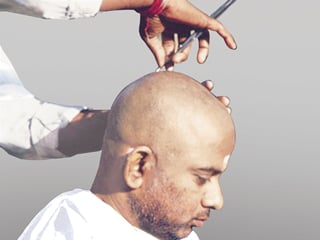
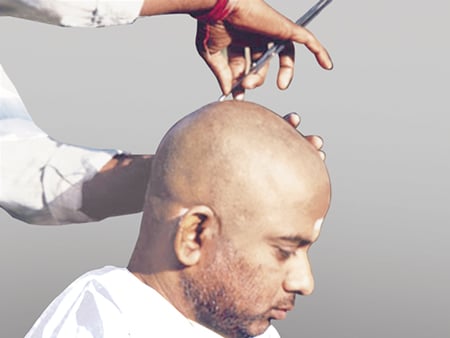
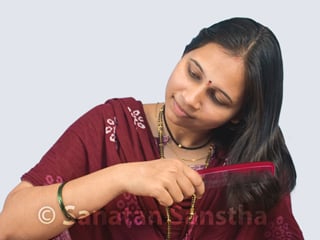 Achars pertaining to combing hair
Achars pertaining to combing hair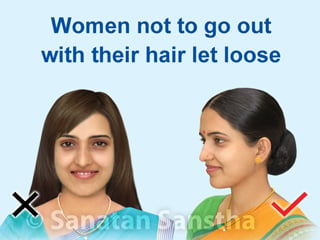 Why should women not go out with loose hair ?
Why should women not go out with loose hair ? Ayurvedic shampoo and Chemical based shampoo - Comparative study
Ayurvedic shampoo and Chemical based shampoo - Comparative study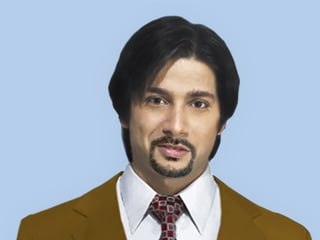 Is it wrong for men to have long hair and beard ?
Is it wrong for men to have long hair and beard ?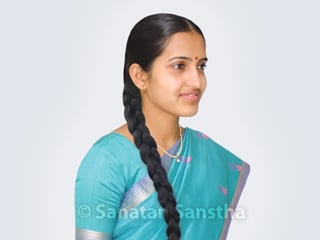 Frequently Asked Questions on Hair
Frequently Asked Questions on Hair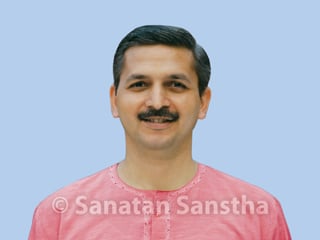 Function of Hair and its Benefits
Function of Hair and its Benefits
But U forgot to mention tithis and days good for hair should be cut!
Namaskar, we have mentioned tithis and days not good for hair cut. On all other days, one can do hair cut
All the great male yogis in the past had long hair: this article is absurd! Cutting hair for men is a Christian, Islamic and European fashion